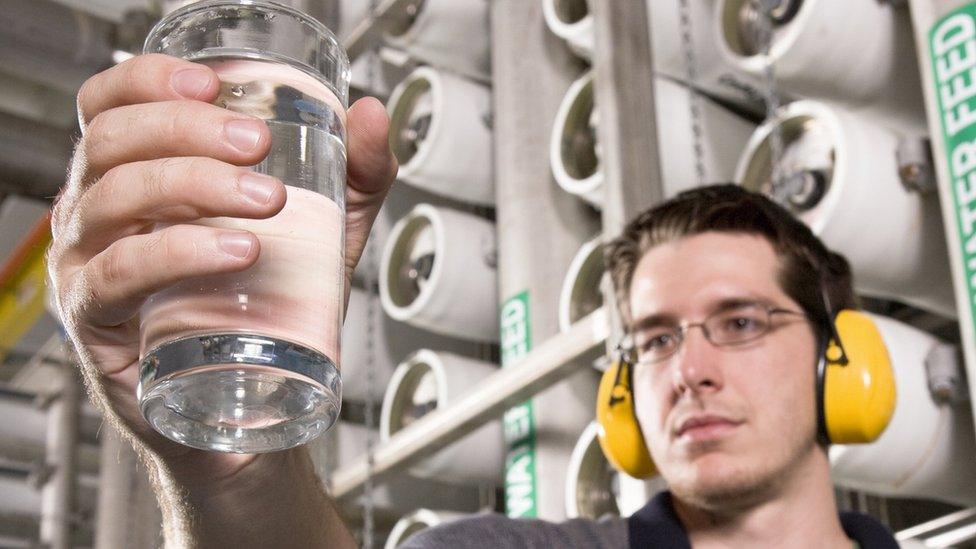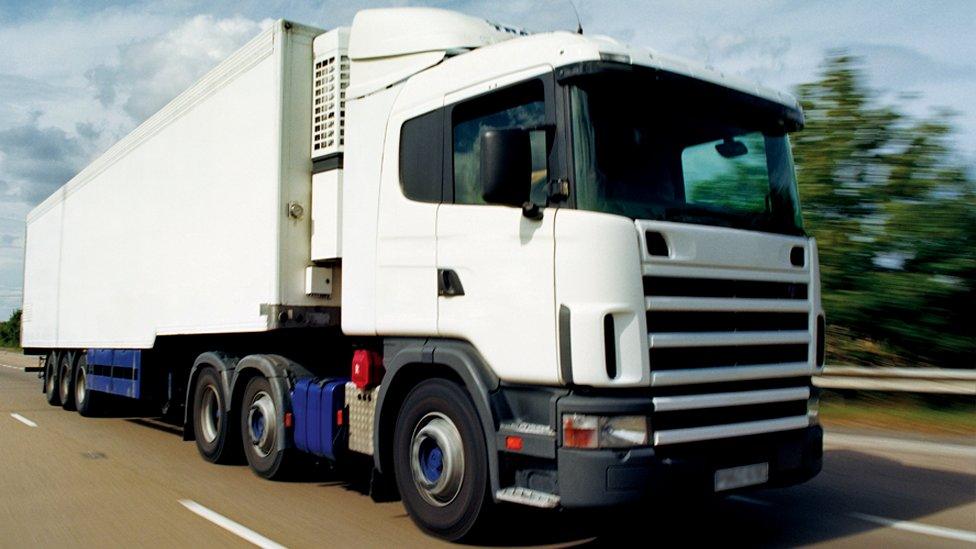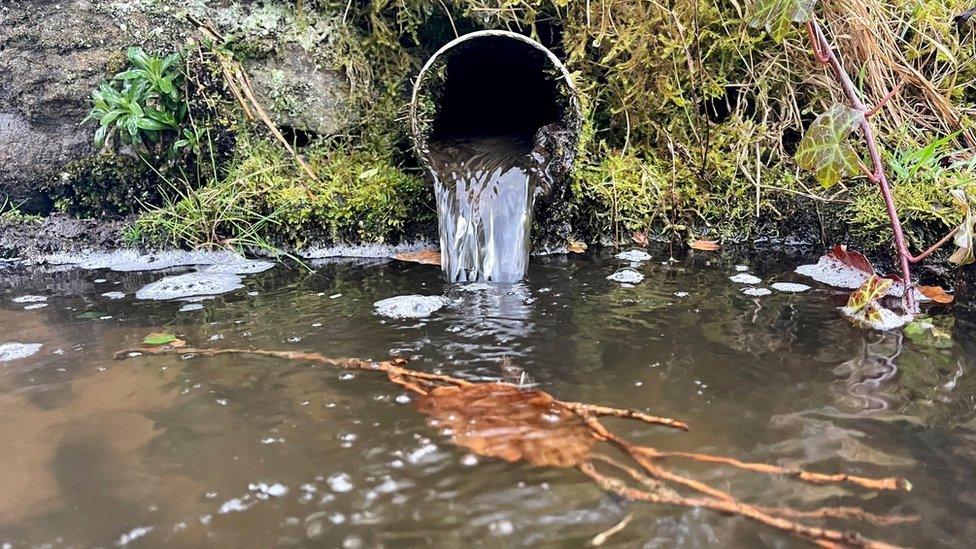Water companies face chemical supply disruption
- Published
- comments

The Environment Agency has told water firms they can temporarily reduce the amount of chemicals used for the treatment of waste water.
The move comes in response to problems in the chemical supply chain caused by the lorry driver shortage.
Water UK said there was no shortage of the chemicals, just a distribution issue.
The government said it was a short-term measure and firms wishing to make use of it had to seek official approval.
The Environment Agency issued a regulatory statement authorising "a temporary reduction in the dosage used to treat waste water".
The Chemical Business Association (CBA), which represents chemical businesses within the supply chain, had expressed concern that its members were struggling to get chemicals into the logistics network and to water companies because of a shortage of HGV drivers.
"Our member companies have been reporting ever increasing difficulties in sourcing and maintaining deliveries into the chemical supply chain, all of which we have been highlighting to government, said Tim Doggett, chief executive of the CBA.
"Inevitably these issues are now beginning to impact the our water supply. As such we're now calling on government for urgent and increased action to help tackle these issues."
A spokesperson for Water UK said: "We are currently experiencing some disruption to the supply in England of ferric sulphate, a chemical used at some drinking and waste water treatment sites.
"This will not affect the supply of drinking water. As a precaution, however, we are monitoring the situation due to the use of ferric sulphate in some waste treatment works.
"We are working closely with government and our chemical suppliers to ensure disruption is minimised.
"This issue has arisen due to a shortage of HGV drivers in the UK. There is no shortage of ferric sulphate in factories; the issue is solely one of distribution."
A government spokesperson said: "This action is strictly time-limited and there are robust conditions in place to mitigate risks to the environment.
"The most sensitive and high-risk watercourses will not be affected and any company planning to make use of this short-term measure must first agree its use with the Environment Agency, which will be checking compliance."
Wider problem
The shortage of lorry drivers has been affecting many parts of the UK's economy.
The Road Haulage Association estimates that there is a shortage of more than 100,000 drivers in the UK, out of a pre-pandemic total of about 600,000.
As well as lorry drivers, shortages of other staff have also hit supply chains, and the business lobby group the CBI has warned that these shortages could last for up to two years.
The problems have been blamed on the furlough scheme keeping some staff out of circulation, the pandemic more broadly, and EU workers leaving the UK following Brexit.
The CBI has said the list of "shortage occupations", which determines whether overseas workers are granted work visas, should be widened to include HGV drivers as well as other occupations.
A government spokesperson said: "As driver shortages across Europe demonstrate, this is a widespread problem caused by a range of factors, including an ageing workforce.
"Most of the solutions are likely to be driven by industry, with progress already being made in testing and hiring, and a big push towards improving pay, working conditions and diversity.
"We recently announced a significant package of measures, including plans to streamline the process for new drivers to gain their HGV licence, and increased capacity for HGV driving tests."
Related topics
- Published2 September 2021

- Published15 October 2021

- Published2 August 2021

- Published12 April 2021
